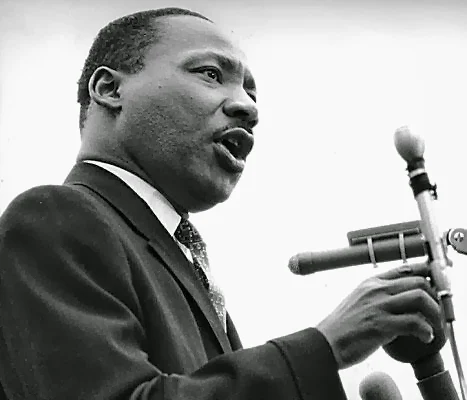I don't have explanations or theories about this, nor do I have a plan or even a suggestion to propose. I only have an observation, and I can't get past how astonishing it is to me.
Let me begin where I started thinking about this lately, with some history that is clearly still relevant. Since technology began to reshape the workplace after World War II, forward-looking economists and other social thinkers saw that what was soon called automation was probably going to lead to a social crisis. Machines were going to put humans out of work. Unemployment would rise, incomes would fall, the economy would suffer with fewer consumers, and poverty would grow, with its attendant social problems as well as human suffering.
In the mid 1960s an approach was developed that came to be called the Guaranteed Income (also called the Guaranteed Minimum Income and Guaranteed Annual Income.) Economist Robert Theobald edited a book of essays on the subject in 1966 called The Guaranteed Income: Next Step in Economic Evolution? It advocated the idea from economic, political, institutional and psychological points of view. (Psychologist Eric Fromm called it the key to the transition from a pre-human to a fully human society.) Other books explored the moral dimensions. We're talking facts and figures, studies and complex arguments.
A guaranteed income was seen as an antidote to job losses through automation, but also as a way to attack poverty and its attendant problems more efficiently. In substituting for a grab bag of inefficient and dehumanizing programs, a guaranteed income would not even cost more than the programs it replaced. Society would have to bear less financial burden for health, education and other problems that were rooted in poverty, in not having enough money.
These ideas were influential and persuasive enough that they informed proposals for laws and implementation. Martin Luther King (whose federal holiday birthday so many piously and cynically celebrate) supported one version as part of the proposed Freedom Budget. George McGovern was ridiculed for proposing his version in the 1972 presidential election, but something like a minimum income passed the House and almost passed the Senate during the Nixon administration, with White House support.
Today we are living in the world those people were worrying about. It hasn't played out exactly as any of them foresaw but the basic situation is here: technology combined with other factors has created a permanent surplus work force, either permanently or often unemployed, underemployed or unemployable.
And we continue to have complex and dehumanizing social programs that really nobody likes, and they are insufficient. So given how long ago these problems were anticipated, you'd think we'd be pretty smart about them now.
Instead, what do we have? Not only aren't we progressing on this growing problem, we're falling back from where we were in the 1930s. The U.S. Congress has once again failed to renew unemployment insurance which they let lapse just in time for Christmas. Unemployment insurance is something that workers have paid into, and so the government took the premiums and refuses the insurance. Sounds like the health insurance business before Obamacare.
Congress is balking at raising the pitiful minimum wage. Republicans are busily trying to prevent people from getting health care. Congress cut food stamps--food stamps! for the poor. At best, damaging individual and national health and nutrition, at worst telling poor people to please just starve. At least, poor people in Democratic states (the cuts targeted 16 states and DC; 15 went Obama twice, 28 of their 32 Senators are Dems.)
This of course comes at a time when the gap between the very wealthy few and everyone else is as extreme as it has been since at least World War II. Such a huge proportion of money in the hands of a few helps to cripple the economy by keeping that money out of circulation. But coupled with this, the public views of the very rich and their minions also have never been so extreme.
This was summed up in a recent dumbfounding story. When Oxfam released its report showing that the 85 richest people in the world hold more wealth than the 3.5 billion poorest (that's the collective wealth of 85 vs. the collective wealth of 3,500, 000, 000), an on-air apologist for the wealthy exclaimed that it was great news.
These extreme views of a handful of very wealthy men and women are so politically powerful that any semblance of democracy is threatened. Some of these views are so outrageous that they seem surreal, but they aren't just the views of a few cranks (Josh Marshall has some penetrating thoughts on what they are.)
Whatever the psychology involved, it's a clear threat, especially when politics is more and more about money. When the Koch brothers, through their tax exempt groups, spent more money in the 2012 election than all of the candidates combined in 2000, it's just a matter of time before that investment pays off.
It clearly is paying off in Congress. It's becoming clear now that the story isn't a sane Republican business class trying to control and manipulate the Tea Party rabble. The rabid right as well as the Tea Party is the direct product of some of the wealthiest and most politically active right wing extremists.
Meanwhile the spiral continues downward. A new report confirms that nearly half of Americans are living paycheck to paycheck. These include the new lower middle class, mostly two-parent, two-job families with at least one college education--yet they still struggle. It seems that everybody sees the growing wealth gap, and can't agree on anything else.
Meanwhile the suffering continues and grows, and so far mostly in silence. If there isn't a hell I hereby authorize Sister Editha to design one, just for that billionaire who said that he's rich because he works harder than people who aren't rich. Here's just one story about the lives of people who work harder than that asshole can even imagine, and are still in a world of pain.
It's not completely bleak. President Obama keeps shining a light on all this, and much to my surprise, there's a Pope now who is more than mouthing platitudes. Some like Robert Reich call for a new WPA (some guaranteed income proposals call for community service and public works), stating the same basic economic point: "The real job creators are the vast middle class and the poor — when they have enough money in their pockets." There are even corporate leaders who are aware of the dangers of the growing gap. And even versions of the guaranteed income or negative income tax are being discussed--in Europe.
Another variation getting some attention is the "Citizen's Dividend."And as eye-rolling as otherworldly academia can be, it's worth mentioning that in its precincts, the guaranteed income remains alive and well. Now it's called the Basic Income Guarantee--" an unconditional, government-insured guarantee that all citizens will have enough income to meet their basic needs." There's a U.S. Basic Income Guarantee Network with a website, academic papers and an annual Congress. The 12th was last May in New York (a joint project of Basic Income Canada Network and the U.S. network.) The 13th joint confab is scheduled for June in Montreal, perhaps to prepare an actual proposal for Canada.
Still, the state of the U.S. political zeitgeist is clear. At a time when most everyone agrees the income or wealth gap is so extreme (and the numbers clearly show it is), we are at the extreme edge of not dealing with it--of actually penalizing the people who suffer the most instead of coming up with the best ways to help them, and to help this economy and this democracy get better, instead of sliding into decadence and despair. And it is the most wealthy--the greatest beneficiaries of the political system, including efforts by the Obama administration--who are the most publicly aggrieved. It seems the gap between political perception and reality is just as enormous.
And it reminds me a little too much of the political zeitgeist in regard to the climate crisis. You could essentially write the same story.
Star Trek Nemesis (Star Trek X)
-
*This is the tenth in a series of essays on the first ten Star Trek movies,
comprising the Roddenberry-Berman era, and so completes the Trekalog.*
*Star ...
1 day ago
























